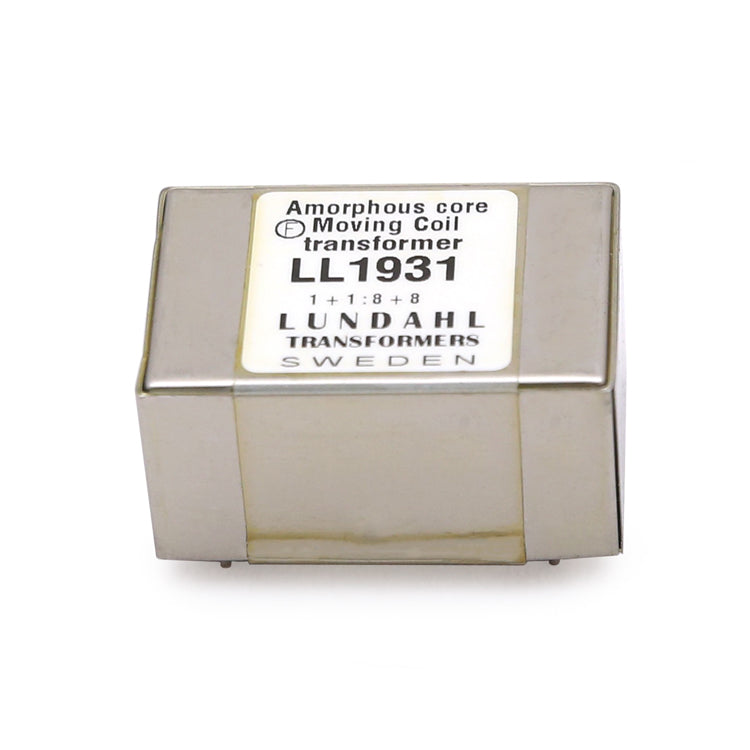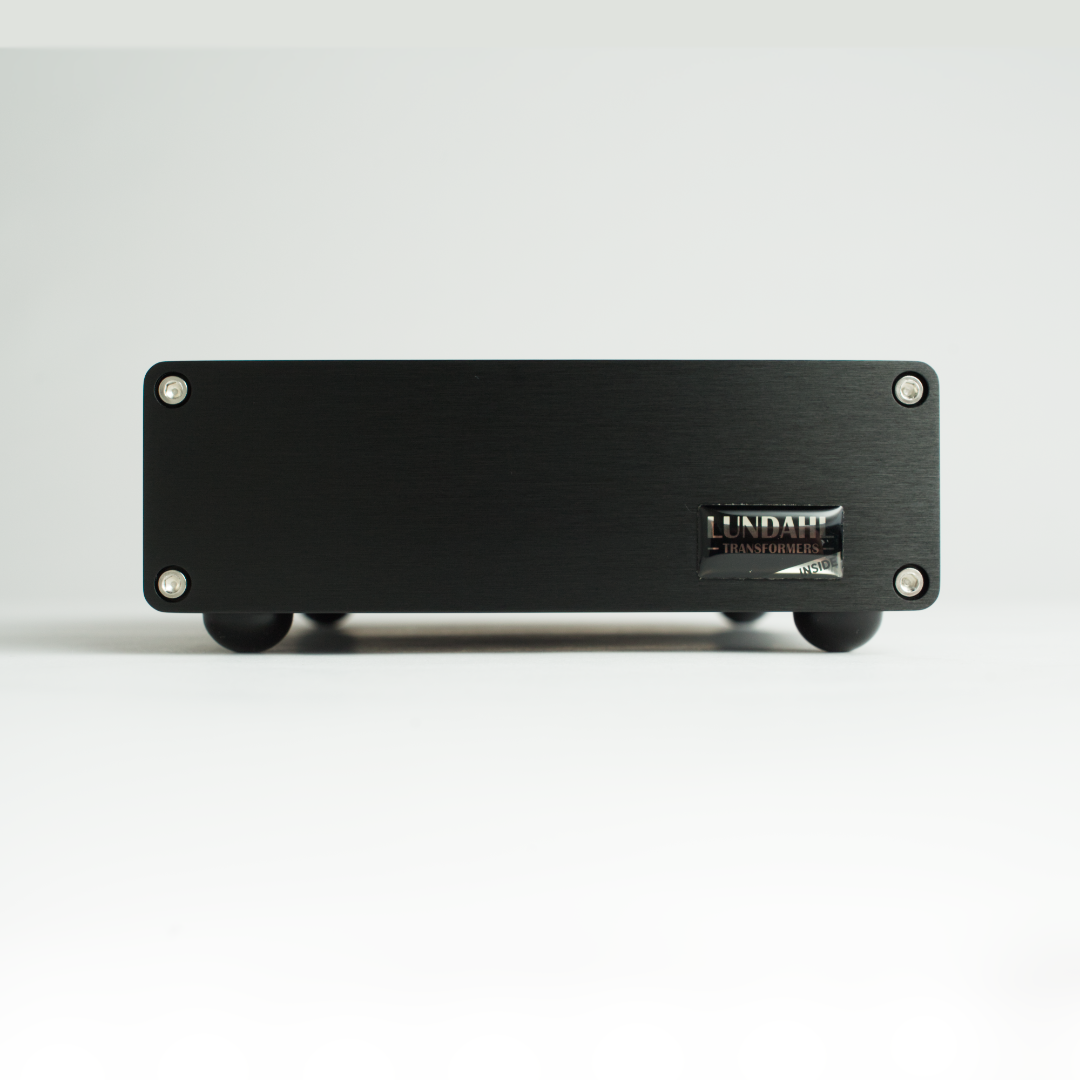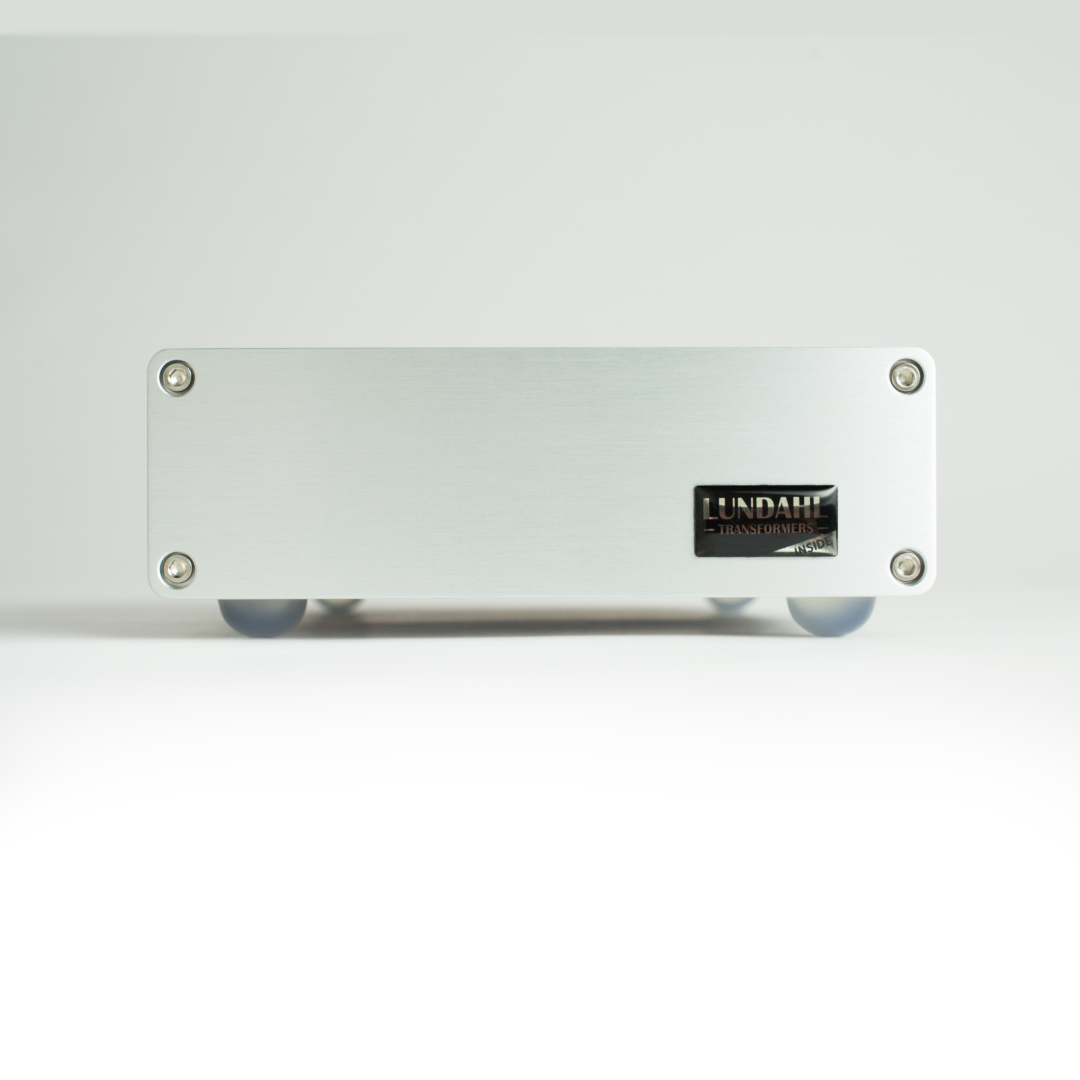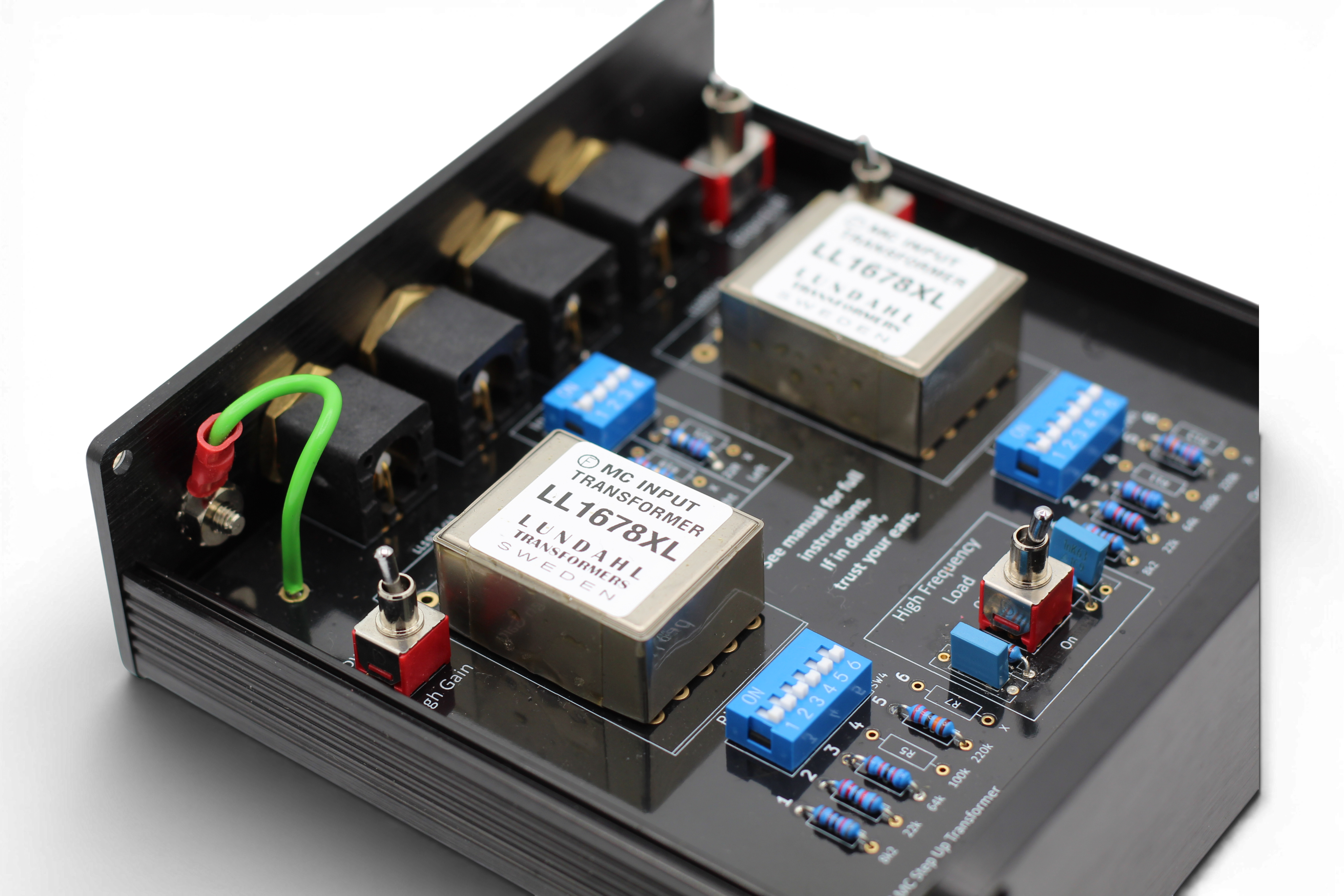Step-Up Transformer (SUT) Loading — Full Calculation Guide
Optimise MC cartridge loading with exact math: reflected load, secondary resistor, effective input impedance, and adjusted gain.
Why SUT loading matters
A Step-Up Transformer reflects your MM phono input impedance back to the cartridge. Adding a resistor across the secondary lets you fine-tune that load. Getting it right improves tonal balance, noise performance, headroom and correct system integration.
Definitions & symbols
- $N$: transformer step-up ratio (e.g. $1\!:\!10 \Rightarrow N=10$)
- $Z_{\mathrm{phono}}$: phono input impedance (typically $47\,\mathrm{k}\Omega$)
- $R_{\mathrm{load}}$: added resistor across the secondary (optional)
- $Z_{\mathrm{sec,tot}}$: total load at the secondary ($Z_{\mathrm{phono}} \parallel R_{\mathrm{load}}$)
- $Z_{\mathrm{cart}}$: effective input impedance at the primary (what the cartridge “sees”)
- $R_s$: cartridge internal (source) resistance
- (Optional) $R_P$, $R_S$: primary & secondary DCR (Ω)
1) Secondary load
$$ Z_{\mathrm{sec,tot}} \;=\; Z_{\mathrm{phono}} \parallel R_{\mathrm{load}} \;=\; \left(\frac{1}{Z_{\mathrm{phono}}}+\frac{1}{R_{\mathrm{load}}}\right)^{-1} $$
2) Primary load (what the cartridge sees)
$$ Z_{\mathrm{cart}} \;=\; \frac{Z_{\mathrm{sec,tot}}}{N^{2}} $$
3) Solve the added secondary resistor
For a target cartridge load $Z_{\mathrm{target}}$:
$$ Z_{\mathrm{sec,req}} = N^{2}\, Z_{\mathrm{target}},\qquad R_{\mathrm{load}} = \left(\frac{1}{Z_{\mathrm{sec,req}}} - \frac{1}{Z_{\mathrm{phono}}}\right)^{-1} $$
Pick the nearest E24 value, then recompute achieved $Z_{\mathrm{cart}}$ and adjusted gain.
4) Adjusted gain (divider loss)
Cartridge source resistance and the primary load form a divider that trims the ideal ratio $N$:
$$ \frac{V_{\mathrm{sec}}}{V_{\mathrm{cart}}} \;=\; N \cdot \frac{Z_{\mathrm{cart}}}{Z_{\mathrm{cart}} + R_s}, \qquad G_{\mathrm{eff,dB}} \;=\; 20\log_{10}\!\left( N \cdot \frac{Z_{\mathrm{cart}}}{Z_{\mathrm{cart}} + R_s} \right) $$
Including DCRs: add $R_P$ in series on the primary; add $R_S$ in series on the secondary before the parallel network.
5) Worked example
Target 100 Ω with 1:8 into 47 kΩ.
- Required secondary total: $Z_{\mathrm{sec,req}} = 64 \times 100 = 6.4\,\mathrm{k}\Omega$
- Solve shunt: $R_{\mathrm{load}} \approx 7.41\,\mathrm{k}\Omega$ → use $7.5\,\mathrm{k}\Omega$
- Achieved parallel: $Z_{\mathrm{sec,tot}} = 47\,\mathrm{k}\Omega \parallel 7.5\,\mathrm{k}\Omega \approx 6.47\,\mathrm{k}\Omega$
- Achieved primary load: $Z_{\mathrm{cart}} = 6.47\,\mathrm{k}\Omega / 64 \approx 101\,\Omega$
- With $R_s \approx 40\,\Omega$, effective gain ≈ $15.2$ dB
6) Quick decision rules
- If $Z_{\mathrm{target}} \ge Z_{\mathrm{phono}}/N^{2}$ → no resistor required.
- Otherwise add a shunt across the secondary and re-check $G_{\mathrm{eff}}$.
- If gain loss is excessive, use a different $N$ or higher $Z_{\mathrm{target}}$.
7) Live calculator
Custom Transformer & E24 Resistor Calculator
Find the nearest E24 load and see the real outcomes
Tip: Press Enter to calculate.
Results
Instructions
- Enter transformer DCRs (Ω) and step-up ratio.
- Enter phono input in kΩ (e.g. 47 for 47 kΩ).
- Enter your desired cartridge load (Ω). Optionally add cartridge DC resistance and output (mV).
- Press Calculate or hit Enter.
Effective Input Impedance = Primary DCR + reflected (Secondary DCR + parallel of phono input and E24 shunt)$/n^2$.
Gain includes transformer ratio, DCR losses, and loading.




